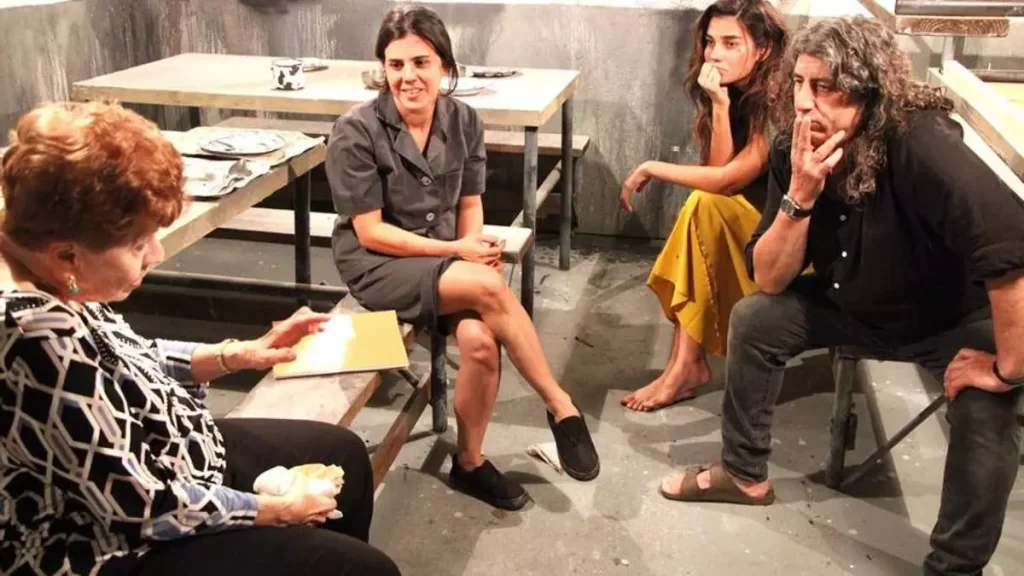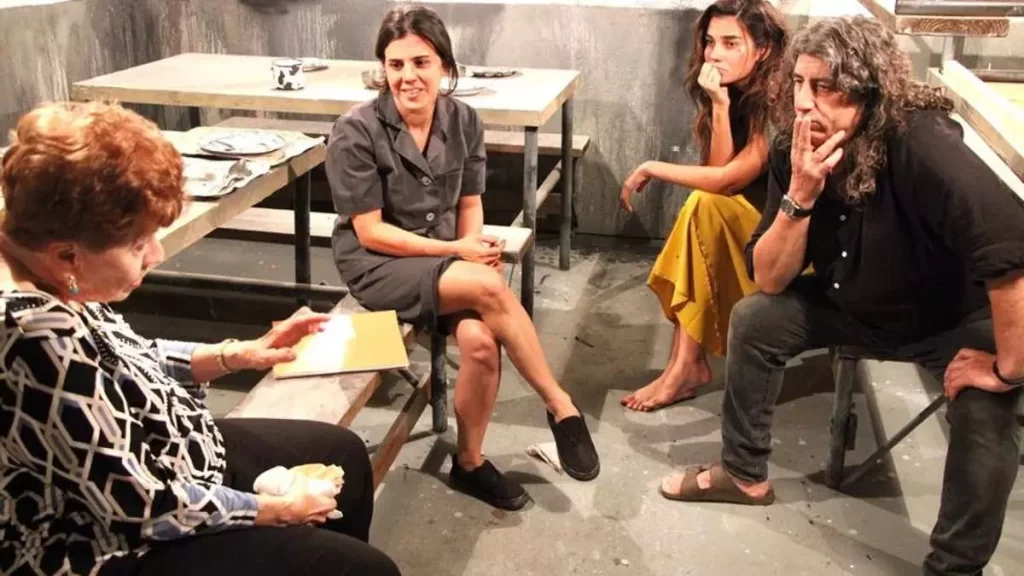The film can be seen in Cuba using the link sent through friends

14ymedio, Reinaldo Escobar, Havana, 15 June 2024 — In a narrow, dirty and crowded cell, several prisoners support each other so as not to lose their sanity or their lives. The guards bring a beaten woman to the dungeon and the prisoners receive her with words of encouragement, despite the situation in which they find themselves. The scene, from the film Plantadas*, shows the importance of solidarity in the Cuban political prison system and delves into a portion of national history silenced by official discourse.
Lilo Vilaplana speaks with 14ymedio about his work, which is a shock against oblivion and a tribute to those women who warned, very early on, of the authoritarian drift of Fidel Castro’s regime.
14ymedio/Escobar: How difficult was it to process all the hours of interviews with former Cuban political prisoners and concentrate them into two hours of film?
Vilaplana: It was like putting together a puzzle so that the final product reflected the story told by each of them. Plantadas is not a documentary, nor a docudrama, but we start from real stories to create an entertaining plot that has three female characters, with their dramatic lines, representing the thousands of political prisoners in Cuba’s prisons since 1959 for disagreeing with a system that was implemented with blood, terror, betrayals and lies. The work we did with the writer Ángel Santiesteban was precisely to create those plots and subplots. Arranging the action based on the initial stories was a difficult challenge and required many hours of work.
14ymedio/Escobar: Did you encounter any reluctance on the part of the interviewees to tell their story?
Vilaplana: Some did not want to speak, because they did not want to open that wound. I understand them, there are painful stories, many were not able to have children, there were others whose children were told by the communists that their mothers were imprisoned because they did not want to be with them. There were scores of tortures, humiliations and difficulties caused by their imprisonments.
Some did not want to speak, because they did not want to open that wound. I understand them, there are painful stories, many were not able to have children
Currently, several of those who did not initially give us their stories, after watching the film, have begun to accompany us to activities to offer their testimony to the public. The first one to tell us her story was América Quesada, who was not able to see the finished film, because she died a few days before filming began. From the money that she had raised up to that point for the film, we gave her family the sum necessary for her cremation, because she was having financial difficulties.
14ymedio/Escobar: In the reconstruction of the locations, especially in the outdoor scenes and those inside the prisons, it seems that a contrast was sought between light and shadow, between clarity and gloom.
Vilaplana: Each space has a specific mood. It is something that we were very clear about from the beginning. The light, the sound, the camera shots, the art of each space was worked with very few resources, but with great accuracy and care. We were clear that there must be a marked difference in these environments.
14ymedio/Escobar: Among the protagonists are several faces of the Cuban women who have recently emigrated to the United States, who were indoctrinated while in Cuba to view political prisoners as mercenaries. Was it difficult for them to embody those prisoners?
Vilaplana: It was a very interesting mix of actresses and actors with experience and long exiles, and others who have been in the diaspora for some time. Among them were several newcomers who, until recently, had starred in films with the ICAIC [Cuban Art Institute and Cinematographic Industry]. It was very interesting, because they adapted.
Everyone knew the movie Plantados. They had seen it in Cuba and here, they met with many of those male prisoners and also with the female political prisoners. They asked them for advice, they asked them questions, and that way they learned the story firsthand, that is a luxury for any actor. They


